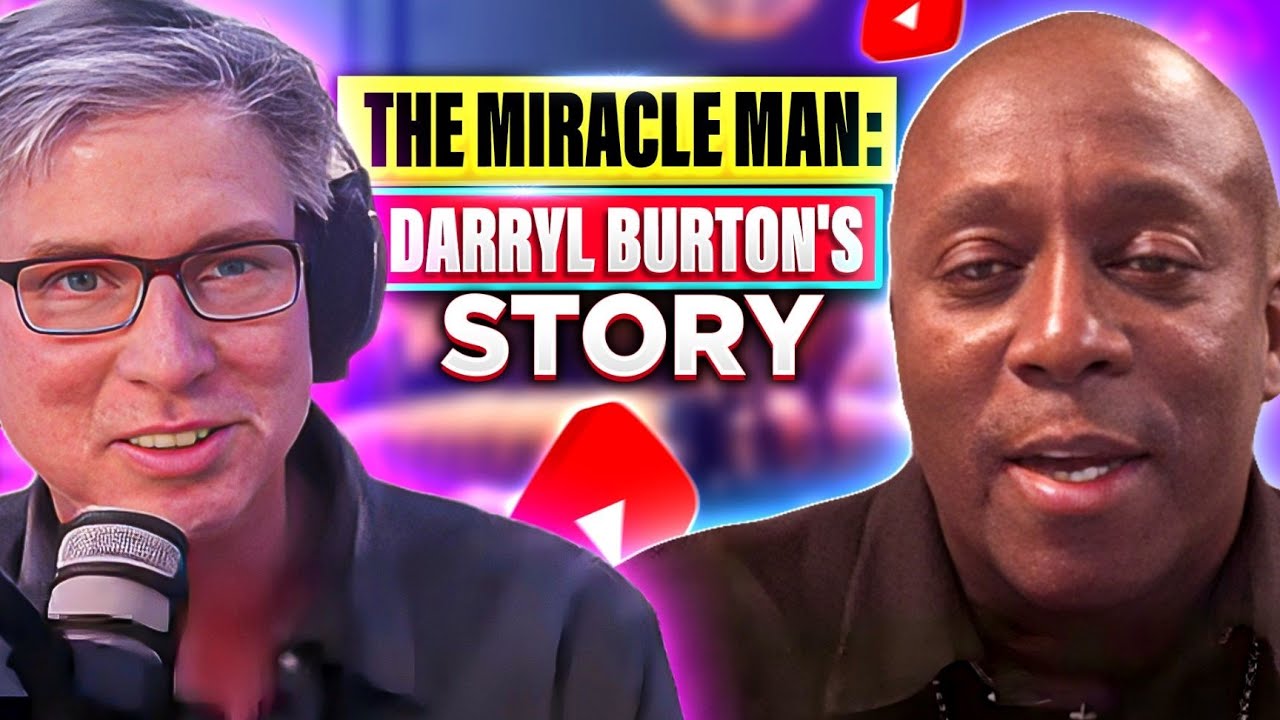I remember the moment Darryl Burton stood in a police lineup, his heart racing as he felt the weight of the world pressing down on him. He was just seventeen, a kid from the inner city of Saint Louis, when he found himself surrounded by officers who were about to make a life altering mistake. They were looking for someone to blame for the murder of Donald Ball, and in that instant, Darryl realized he was being wrongfully accused for a crime he didn’t commit. It was a moment of confusion and disbelief, a snapshot of his life that would echo through the next two decades.
Growing up in a close knit family with nine siblings, Darryl faced financial struggles but always found support in those around him. His grandmother, the matriarch of the family, instilled values of love and unity that shaped him. He was an active young man, involved in sports and gymnastics, always striving for more, despite the challenges of his environment. But that day in the lineup shattered everything he knew about justice and security.
The police had been misled, and the connection they made was based on false information about a girl, a connection that would lead to his arrest. As we often learn, life can take unexpected turns. Darryl’s previous legal troubles, including a burglary conviction, painted a picture that law enforcement and the courts would latch onto, disregarding his innocence. The arrest marked the beginning of a long and painful journey through a justice system that seemed unwilling to listen.
Despite his protests of innocence, Darryl was charged with capital murder. This was a nightmare that he could never have imagined, one that would see him locked away for 24 years. Prison was not just a physical confinement for Darryl, it was a battleground for his mind and spirit. The conditions were harsh, and the emotional toll was heavy.
He grappled with disbelief and confusion, unable to comprehend how someone innocent could be trapped in such a horrific situation. His days turned into years, and while the world outside continued moving, he fought tirelessly to prove his innocence. He learned about the flaws in the justice system, the cracks that could swallow a person whole, and he began to understand the importance of fighting for one’s truth. But it was during this time that Darryl began to find purpose in his struggle.
He spent countless hours reading, studying the law, and connecting with others who shared similar fates. He became an advocate for justice, using his voice to speak out against the very system that had condemned him. His determination transformed his pain into a mission, one that would ultimately lead him to freedom. The day he walked out of prison, after 24 years of wrongful imprisonment, was not just a release from confinement, it was a reclaiming of his life.
Darryl’s journey didn’t end with his release. He understood that his story was not just his own but a reflection of countless others who have suffered under the weight of injustice. He began sharing his experiences, speaking to groups and advocating for change within the justice system. His message is clear: “You have to fight for your truth.” This declaration is a rallying cry for anyone who feels powerless in the face of adversity.
It serves as a reminder that, even in the darkest moments, we can find the strength to stand up and demand what is right. Reflecting on Darryl’s story, I am struck by the resilience of the human spirit. His journey through confusion and despair to empowerment and advocacy reminds us that our experiences, no matter how painful, can lead to profound insights about purpose and meaning. In a world where injustice often prevails, Darryl’s fight is a testament to the power of perseverance and the necessity of speaking out against wrongdoing.
It is a call to action for each of us to be vigilant, to listen, and to stand with those who seek justice. As we move forward, may we carry Darryl’s message in our hearts, reminding ourselves of the importance of compassion and the need to confront injustice wherever we see it. His story is not just about overcoming, it is about embracing our humanity and the responsibility we have to one another.

